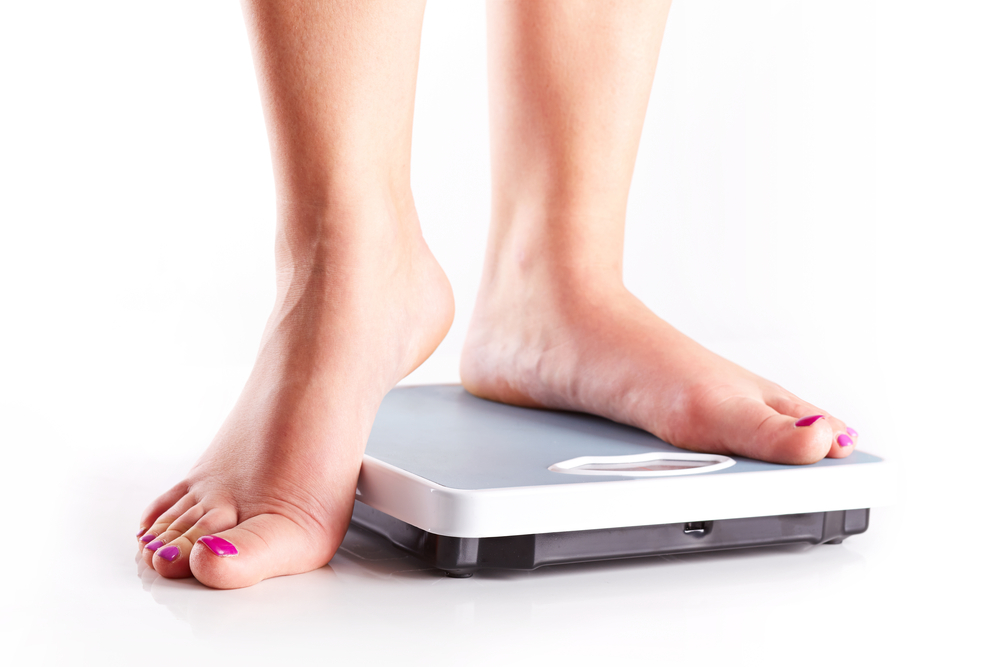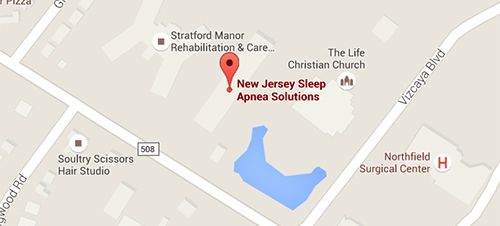The Importance of Weight Loss in Treating Sleep Apnea
Submitted by New Jersey Snoring Solutions on Fri 08/28/2015 - 09:00

Approximately 70 percent of people who have obstructive sleep apnea (OSA) are overweight or obese. If you are overweight and are experiencing sleep apnea symptoms, losing just 10 percent of your body weight could lead to a significant decline in, and possibly an elimination of, these symptoms. In this blog post, the sleep apnea experts at New Jersey Sleep Apnea Solutions discuss the ways in which extra weight contributes to sleep apnea, and how important losing weight is as part of its treatment plan.
How Weight Loss Helps OSA
People who are overweight have more tissue in the back of their throat than people who are at a healthy body weight. This tissue falls over and blocks the airway during sleep, resulting in OSA. Heavier people also tend to have thicker necks, which can narrow the airway, making it hard to breathe.
In addition to this, extra fat on the chest has a compressing effect on the chest, and excess internal abdominal fat pushes the diaphragm up, both of which factors interfere with the body’s ability to inhale deeply. Weight loss — even as little as 5 percent of a person’s body weight — will decrease these fat deposits so that a person with OSA has less interference when breathing.
Other OSA-related Risks Decreased by Losing Weight
Not only does weight loss help to alleviate sleep apnea symptoms, it can also drastically decrease the risk of other serious conditions exacerbated by OSA, such as:
- High blood pressure
- Heart disease
- Stroke
- Diabetes (type 2)
Sleep Loss and Hunger Hormones: Breaking the Vicious Cycle
It’s a cruel truth that sleep apnea and weight gain are linked in a vicious cycle, making it even more difficult for a person who has OSA to lose weight. This is because the hormones ghrelin and leptin, often called “hunger hormones,” are triggered by sleep deprivation, a common byproduct of sleep apnea. Loss of sleep or low-quality sleep releases these hormones, which makes a person hungry (often craving carbohydrates as well as sugary and fatty foods). The more a person eats, of course, the more weight they gain, and the sleep apnea remains or gets worse over time.
So, how do you break this seemingly endless cycle? Here are some simple yet effective tips to help you get started:
- Fill up on vegetables — make them three-quarters of every meal
- Stop eating three hours before bed
- Drink plenty of water, especially after meals
- Start exercising slowly — even a 15-minute walk around the block
- Talk to our sleep experts about OSA treatment for longer and better-quality sleep
Combine Weight Loss with Oral Appliance Therapy
Are you tired of being overweight and always groggy because you can’t sleep through a full night without gasping for air? A good weight loss plan combined with oral appliance therapy will help you to get a better night’s rest every night, so that you can work, go to school, and just function in your everyday life! To learn more about the oral appliance therapy offered at New Jersey Sleep Apnea Solutions, contact us today by calling (855) WHY-SNORE or (855) 949-7667.







